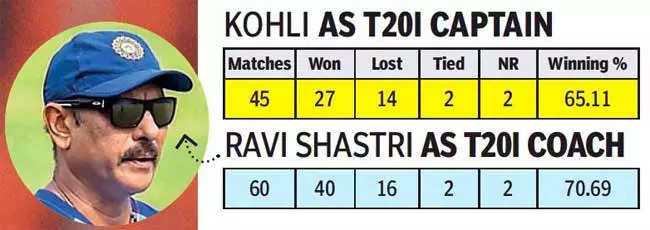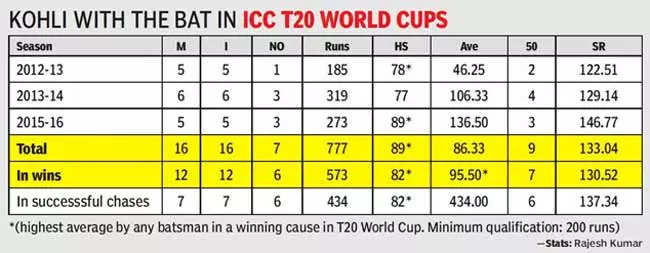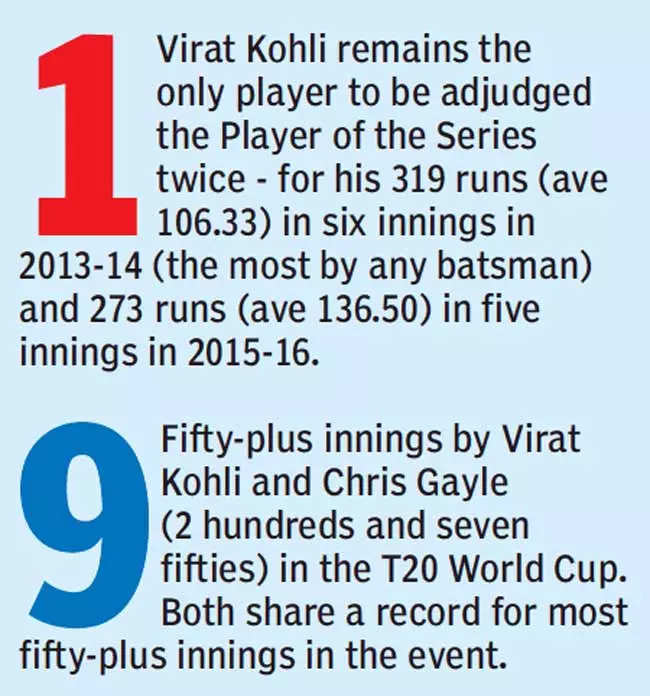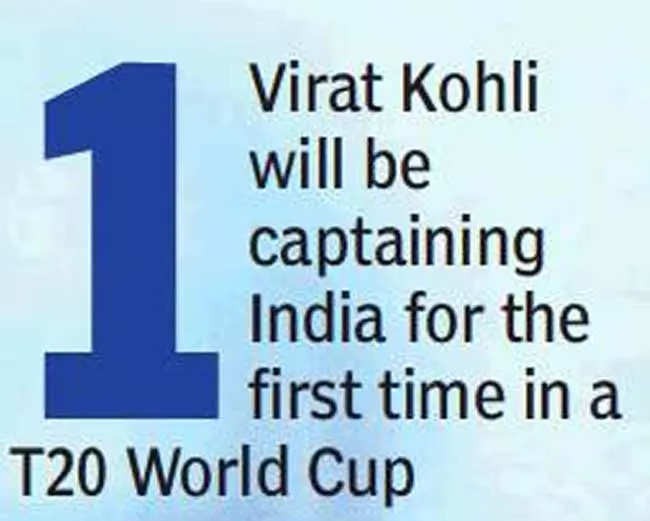
[ad_1]
Virat Kohli can be forgiven for thinking the world has been unkind to him over this past month and a half. In the beginning of September, he was, not for the first time, the toast of a nation following India’s impressive win in the Oval Test in England. Cut to the middle of October and the Kohli story seems almost passé.
India’s all-format captain, struggling since late 2019 for the kind of prolific batting form which brought him renown, has hastily closed one chapter in his cricketing life by announcing that he will step down from the T20I captaincy after the ongoing World Cup.

He has cited workload issues as a factor and no doubt would like to redouble efforts to find another purple patch with the bat. Kohli has also relinquished the captaincy of his IPL team and it isn’t a stretch of the imagination to surmise that the ODI captaincy may not be his for long.
It is still inconceivable to think that India’s all-powerful captain may, by the end of the year, be working on keeping his place in the white-ball teams. However, like all captaincy changes in Indian cricket, this sequence of events hasn’t been straightforward and has been simmering for some time. Kohli’s abrupt announcements have been surrounded by a vague drumming up of his inability to win an ICC trophy.

The insinuation, from various quarters, has been that his captaincy may have been to blame for this lack of notable silverware in India’s cabinet. There has also been talk of lack of communication, private grievances and misunderstandings, again in ambiguous terms.
Kohli’s decision was surprising because there are a couple of World Cups coming up which could have helped him rectify that record of not having won an ICC title. Was he pushed or did he jump? Indian cricket, always a world of whispers and allusions in which conspiracy theorists thrive, is not a pleasant place when a churn at the top is around the corner. If anything, Kohli will have learnt that perceptions about people can be powerful. They can also be wrong, of course.
Along with Kohli stepping down, coach Ravi Shastri will also depart after the World Cup along with most of his backroom staff, bringing a notably successful partnership to an end.

The narrative, then, is all about the post-Kohli era as an under-pressure Team India prepares to huddle and plan for the T20 World Cup, a tournament they haven’t won since 2007. The talk is all about Dravid as next coach, Dhoni as mentor for this tournament, Rohit Sharma as inevitable successor.
It’s almost as if the rather unsettled state of the present has ceased to matter, making this tournament a back-to-the-wall affair for Kohli. Fail to lift the title and the preceding changes will seem a natural progression. Win and there will be talk of vital inputs from other quarters.
With his legacy ostensibly hinging on this ICC trophy, it’s easy to overlook that Kohli has not led India in a T20 World Cup yet and has not, by any means, been a doubtful T20I captain.
India have won 27 and lost 14 T20Is under Kohli, giving him a win-loss ratio (1.92) behind only three others in Asghar Afghan, Sarfaraz Ahmed and Graeme Smith.

Kohli has the best win-loss ratio away from home (2.4) and under him India have won series in all SENA (SA, Eng, NZ, Aus) countries. As an aside, Kohli has a 48.16 win percentage as RCB captain compared to 65.11% as India’s T20 skipper. In the IPL too, a title has eluded him.
Not only is Kohli the highest T20I run-getter (3159 runs at a strike rate of 139.04) but he has a stellar record in T20 World Cups: the highest average (86.33, at a strike rate of 133.04), the highest average in winning causes (95.50, SR 133.04) and the most half-centuries (9, along with Gayle).
As a T20I batsman, Kohli is near-impossible to replace. As captain, Kohli knows he has set certain precedents. “We’ve been able to create a culture which is going to be lasting a long time, where people want to be the best… the fittest they can be… when they enter the team. What we’ve created goes beyond trophies,” he said ahead of the start of the World Cup.
Given that yardstick, and India’s current white-ball bench strength and fitness standards, Kohli’s legacy as captain is safe. There has been criticism, however, that he can be restless with his strategies and too reactive with his selections.
Whether this had a hand in him failing to seize the big moments is in the realm of conjecture. For now, another ICC trophy is up for grabs and whether Kohli likes it or not, only trophies matter. It’s a matter of perception.
[ad_2]
Source link